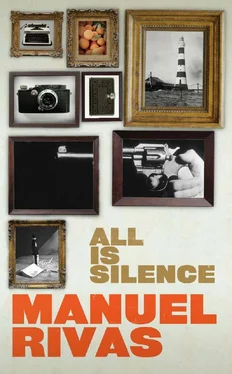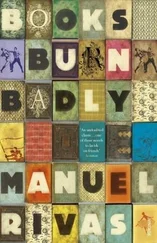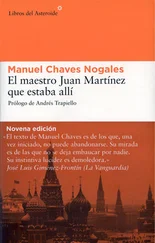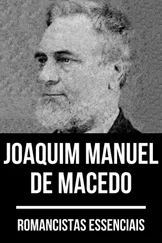The priest continues the funeral oration with an air of apparent routine:
‘“I am the resurrection and the life. He that believeth in me, though he were dead, yet shall he live. And whosoever liveth and believeth in me shall never die.” God is light, he sees everything, hears everything. Knows everything. What’s going on in the darkest corner. In the grottos of the sea and the depths of the soul. Our faith may stumble. We may ask where God is, why he remains in silence.’
Don Marcelo’s voice suddenly begins to shake. He seems bewildered, overcome by the turn of events. Gives the impression he is not going to be able to advance beyond that full stop, that ‘silence’. But suddenly he is transfigured. He’s not praying any more, he’s shouting:
‘God isn’t stupid! He hasn’t come to pussyfoot around. As the psalmist says:
‘He smote the first-born of Egypt,
both of man and beast.
He hath sent tokens and wonders into the midst of thee,
O thou land of Egypt,
upon Pharaoh and all his servants.’
The psalm is like a deposit of wind and gives his voice an unusual preponderance:
‘As for the images of the heathen, they are but silver and gold,
the work of men’s hands.
They have mouths, and speak not.
They have eyes, and see not.
They have ears, and hear not.
Neither is there any breath in their mouths.’
He pauses. This hasn’t happened to him for quite some time, being able to hear and understand his own words.
‘Thus the Lord speaks. He gives us breath and takes it away again. May they rest in peace.’
The workmen place the coffins inside their niches. This is followed by the sound of banging tools. A hammer nailing in wooden covers. The gravestone being slid into place. The final rubric. The priest quickly greets several family members. Offers a sentence of consolation that is left hanging in the air. Then turns to address Mariscal. ‘The religious ceremony has finished. It’s up to you what you do now.’
‘Thank you, Marcelo. You know that’s my favourite psalm. Shame not to hear it in Latin!’
‘Víctor came to see me,’ says the priest, cutting him off. ‘I don’t like the entertainment he’s prepared. This is sacred ground.’
‘It’s a tribute to both of them. Inverno played music all his life. He had the mark of the trumpet on his lips. There were even concerts where they rode on horseback. Noitía’s Magicians was their name.’
‘In Noitía a funeral was always a funeral, and a party a party.’
‘Patience, Marcelo. Remember the first-born of Egypt are in charge!’
‘I’m going. My work here is done.’
‘Thank God your work is never done, Marcelo. You have to take care of us, your flock. Agnus Dei, qui tollis peccata mundi, miserere nobis. We must meet some day and have a chat about Unamuno.’
As the priest leaves, from the far side of the cemetery, hidden until that moment, emerge the members of a mariachi quartet. The musicians, dressed in typical Mexican clothes, perform the ballad ‘Pero sigo siendo el rey’.
A murmur of surprise ripples around the cemetery. Followed by several disapproving looks. This has never happened before in Noitía. The most there was, and this was some time ago, was a bagpipe intoning a solemn march. But as the ballad progresses, the faces take on a renewed sort of expression.
‘If the acoustics are good,’ says Edmundo, ‘in three minutes you’ll have yourself an age-old tradition.’
‘That’s the thing about death,’ replies the Companion. ‘It lends itself to everything.’
IT WAS A refreshing sensation to be in one of the miradors used by Mariscal and not to have to hide, stay under cover, but instead to share the view. What was happening was more than unusual. It struck him as nothing short of miraculous. Because of the person by his side and the topic of conversation. Grimaldo had bumped into him in the station car park. Fins had expected a peevish greeting. Or nothing at all. But in the end he’d spat out a kind of telegram: ‘Meet me at the mirador in Corveiro. In fifteen minutes.’
‘I know you don’t trust me,’ he said when they were there. ‘You do well. Never trust me. But today make an exception.’
Haroldo Micho Grimaldo had the appearance of a dandy from the suburbs, just like the Old Man. A single policeman, he was the only guest in a boarding house whose mistress treated him like a king, viewing any other candidate as a small-time crook who’d come to the wrong door. He didn’t have a shining reputation, at the police station anyway. Though paradoxically he was, or proclaimed himself to be, the Scourge of Vice. One of his roles was to inspect so-called singles clubs, a euphemism he took it upon himself to clarify.
‘Singles clubs? Whorehouses, you mean.’
Proceedings were sometimes begun, but none of the brothels was ever closed. Except when there was a scandal, an argument leading to injuries or casualties, which transcended the barrier of night. This control was vital in the fight against prostitution rings. So Micho Grimaldo was a cynic. Or more than that. Most people thought more than that. This being the case, the strangest thing about his behaviour was that he wasn’t more hypocritical when it came to his impression of an exemplary life. There were periods when he did his best. His virtuous days, as he liked to call them. When his tongue became sharper than usual, like a cut-throat razor. But after that he’d let himself go. Roll from club to club with the repellent air of a perfumer. If others put up with him, it was because he was on the verge of retiring. And because he knew a lot. Or so people supposed. In the past he’d worked for the Political-Social Brigade, whose job it was to hunt down opponents of Franco’s regime. He’d been involved in Barcelona and Madrid. And then returned to his birthplace. He’d inherited a country house from his father, all refurbished, in a village inland, but hardly ever went there. He’d acquired an exciting new identity in his role against vice. Being a whoremonger.
‘Well, are you going to trust me or not? I can’t bear know-it-all silences.’
‘Go ahead, Grimaldo,’ said Fins.
It was dusk. The estuary was like a log, burning from the inside out. Behind them, the darkness slipped whistling over the eucalyptus leaves.
Micho Grimaldo took a stick and began to draw a map on the ground. The axis was the river Miño. He traced the iron bridge at Tui. Despite the conditions, he exhibited a wish for accuracy. He marked the main towns on either side of the border with dots and joined them up with lines representing roads.
‘This Sunday there’s going to be a party,’ he said. ‘An important party. With the excuse of a wedding. Not many guests, very select ones. The party’s going to be here, in the Lower Miño, in a place named Quinta da Velha Saudade. Not far away is an old quarry. There is a track, about a hundred yards long, with a turn-off leading to a site for abandoned machinery. A good spot to hide your car. You’ll have to climb a bit, then go through a forest which runs parallel to the road. On the other side of the road, after a bend, is the mansion. A large terrace overlooking the estuary. High walls. Two entrances. But cars can only go in and out through an automatic gate. When they leave, they have to observe a stop sign, which is right on the bend.’
He’d leaned down in order to draw on the ground and straightened up slowly, holding on to his hips. He stared at Fins. ‘You have to be there! On the sly, of course. Take note of everything on your camera. And that’s all I’m going to say.’
‘Are you going as well?’
‘Didn’t I tell you it was an important party?’ he scoffed.
Читать дальше












